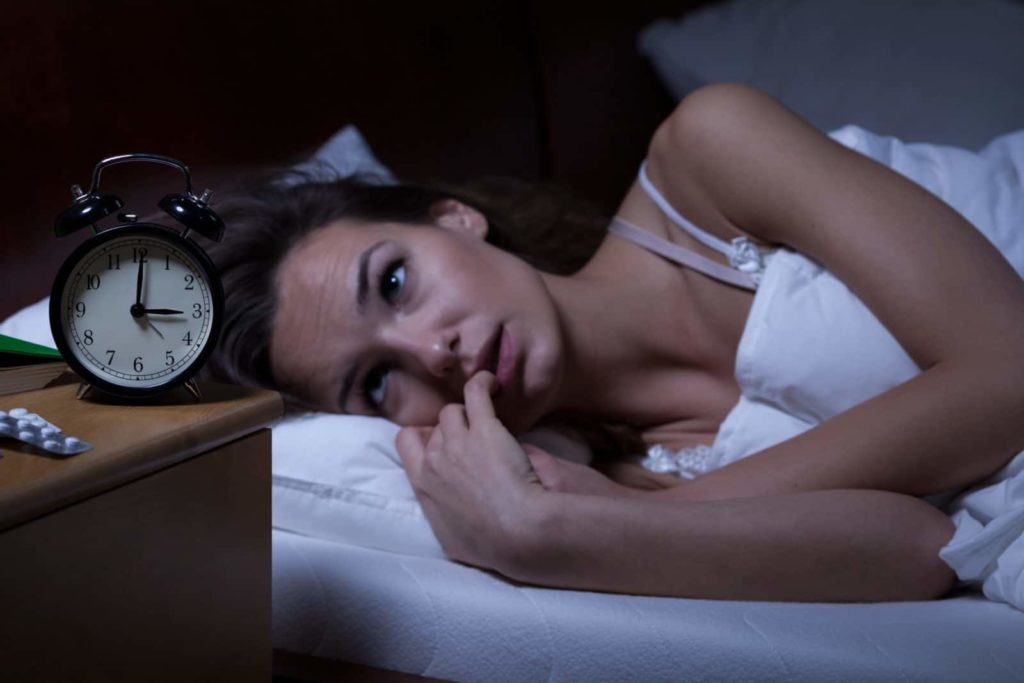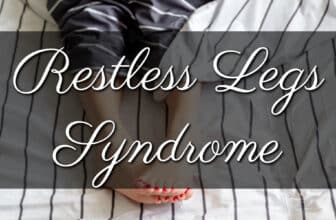Insomnia is more prevalent in our society than you may expect. As many as one-third of adults are experiencing it in some form at any given moment. It can also affect children as well as teenagers. Due to its prevalence, it is important that we know facts about exactly what it is, and how it is affecting our health.
Considering how common insomnia is, it would not be surprising if either you have, or have known someone who has suffered from it. However, you may be surprised to learn that there are different types of insomnia that vary in severity and the way they affect your health. Let’s take a look at some of the causes, symptoms, diagnosis, and possible treatments surrounding insomnia so we can better recognize and deal with it in the future.
What is Insomnia?
Is insomnia a sleep disorder? The answer is yes. It is a sleep disorder that causes people to experience difficulty falling asleep and/or staying asleep. It is the most common sleep disorder and is experienced by most people at one time or another. Some may only have a very acute form while others experience lifelong insomnia.
Overview of Sleep Insomnia Symptoms:
- Problems falling asleep
- Problems staying asleep
- Waking up very early in the morning
- Still feeling tired after waking up
- Issues with memory and concentration
- Irritability and anger
- Low motivation and decreased productivity
- Poor decision making
- Sleepiness throughout the day
Categorizing Insomnia by Cause
One way of differentiating between types of insomnia is by determining the cause. For this, there are two main categories:
1. Primary Insomnia
Primary insomnia is when a person experiences difficulty sleeping that is not associated with any other mental or physical health issues. Other conditions either do not exist or do not directly contribute to it.
2. Secondary Insomnia
Secondary insomnia is when a person experiences difficulty sleeping because of another condition such as pain, stress, depression, illness, medication, or substance abuse.
Other Ways of Categorizing Insomnia
Both primary and secondary insomnia can be categorized by particular traits. The following is a list of main subcategories and what makes them different.
1. Acute Insomnia
Acute insomnia causes sleeping problems that only last for a short period of time. It is usually caused by stress or major change in a person’s life such as moving, changing jobs, or receiving unpleasant news. This type of insomnia often goes away without any kind of treatment other than time and patience. It can last anywhere from one night to several weeks.
2. Chronic Insomnia
Chronic insomnia causes sleeping issues that develops into a long-term pattern. Acute insomnia becomes chronic insomnia when a person has difficulty sleeping for a minimum of three nights per week and this continues for a minimum of three months’ time. This insomnia can be caused by many things and often requires medical treatment to overcome. Some people struggle to keep control of this insomnia most of their lives and go through long periods of time where they experience extreme concerns about going to bed and or staying in bed.
3. Comorbid Insomnia
Comorbid insomnia is paired with another condition such as chronic pain or mental health instability. When a person is uncomfortable either mentally or physically it can disrupt their natural sleep patterns, affecting their ability to rest properly.
4. Onset Insomnia
Onset insomnia causes problems of initially sleeping. Many people are still wound up and mentally stimulated when they attempt to go to bed and this can cause onset insomnia, or difficulty beginning to sleep. This can develop into a long-term pattern over time without proper medical treatment.
5. Maintenance Insomnia
Maintenance insomnia causes problems staying in bed throughout the night. It causes a person to wake up after going to bed and often makes it difficult for them to return to sleep. This can also be caused by an overactive mind and stress.
How Do You Treat Insomnia?
Chronic insomnia should be addressed by a medical professional who can give you a complete evaluation of the situation. Online, websites like WebMD and HealthyPlace are good resources that can guide you. WebMD gives advice on how to keep a sleep diary for a period of time which will help them determine the depth of the problem and a course of action for moving forward. WebMD also has an online sleep habits quiz to give you insights on what keeps you up at night. You may also try the HealthyPlace online sleep insomnia test to find out if you have symptoms. Although these sites are helpful, it is important to remember to always consult your doctor for a professional diagnosis and treatment.
Acute insomnia can often be treated at home without a medical professional by simply putting some time and effort into your bedtime routine and overall lifestyle. Over-the-counter sleeping pills are available but often lose their ability to be effective over time. Sleeping pills should only be used as a last resort.

Overview of Some Good Sleep Habits That Will Help Prevent Insomnia:
- Try to wake up and go to sleep at the same time each day. You can train your body to recognize when it is appropriate to be in bed and awake by setting a strict schedule and sticking to it.
- Try not to take naps because they can cause you to stay up later at night.
- Limit the use of electronic devices before bed. Especially cell phones and tablets that are near your face or those that are backlit. The light they give off can make sleeping difficult.
- Avoid alcohol, caffeine, and nicotine near bedtime. Nicotine and caffeine are stimulating and can make it hard to go to bed. Alcohol can disrupt your sleep throughout the night by making it hard to stay in bed.
- Regular exercise will help you to sleep soundly. However, it’s not recommended you work out within a couple of hours of trying to sleep because it can keep you up.
- Avoid late-night eating or at least consider having your last meal a minimum of two hours before sleeping.
- Do not use your bed for anything other than sleep and sex. You should train your body to recognize bedtime when it is actually in bed.
- Make a relaxing routine that you follow each night. This will also contribute to a neutral winding down that your body recognizes.
- If you worry about stuff before bed, try keeping a journal where you can write the things bothering you down. This has proven to be cathartic for people, allowing them to rest easier.
You Can Also Change Your Surroundings to Help Alleviate Insomnia:
- Make sure your bedroom is dark and at a comfortable temperature for you. The more soothing and comfortable your bedroom is, the more relaxed you will be. You can use essential oils for a more relaxing ambiance.
- Try to use a firm mattress for full support or you may try sleeping on the floor.
You, Me, and Different Types of Insomnia
We have discussed the facts about insomnia and how most people experience some form of it at least one time in their life. We have also discussed how it affects our health and the importance of professional diagnosis for such disorders. Whether it lasts for only one night or an extended period of time, it is important to understand different insomnia sleep disorders so we can recognize its effects on ourselves and others. If we cannot identify it, we cannot treat it.
Additional Resources
- Biphasic Sleep And Polyphasic Sleep
- How To Get More Deep Sleep
- How to Fall Asleep on Adderall
- Sleeping on the Couch





